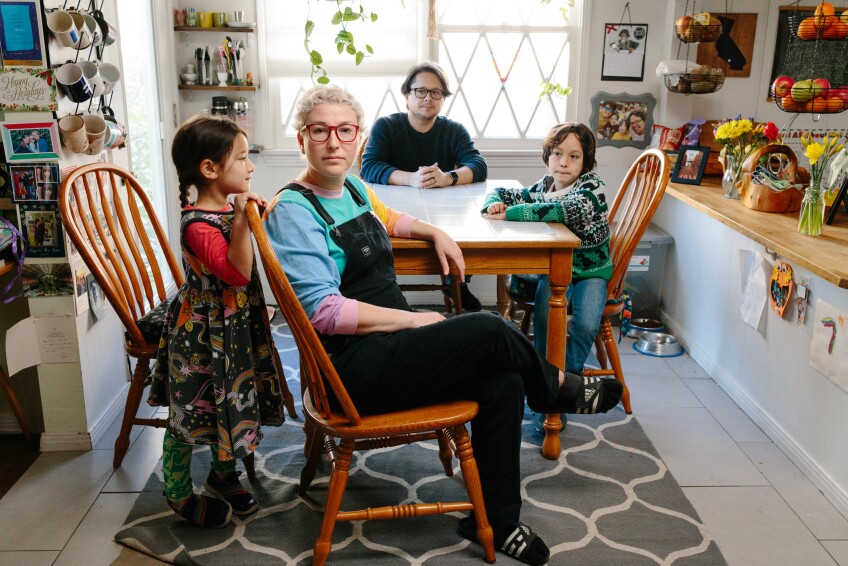Alex Fridman, 37

Alex Fridman
Age: 37
Long Beach
Sunday, March 6, 2022
We immigrated from the former Soviet Union, from Ukraine, when I was about 10 years old. The city we came from is called Dnipro, but back then it was called Dnepropetrovsk. We moved to New York City, first to Brooklyn and then to Queens. All of my family is in the New York area right now; we don't have close relatives left in Ukraine. It has been strange to experience what's going on in Ukraine, when I just have my childhood memories that are there.
We lived in a big apartment building. Almost everyone in my family was an engineer. I remember having a lot of freedom as a kid, running around with my friends and playing near the Dnieper River. We had a farm, a plot of land in a village where we would grow strawberries, cherries, currants, and beans. In a different plot we grew sunflowers and potatoes. My main memories were happy, but there's a lot that we were kind of shielded from. For example, I didn't even know that we were Jewish until a couple years before we left. I think it was just not talked about. I remember my mom telling me later that our neighbor or my teacher was anti-Semitic, but at the time, I had no real sense of it. When you're a kid, things just happen to you, and you don't necessarily know why.
The trauma of past migration and forced migration is coming back for a lot of people, for a lot of Ukrainians and even Russians who are living here now. I was reading about how Jewish communities in Ukraine are 2000 years old. I'm afraid, as a Jewish person, that a lot of Jews will leave Ukraine and not come back – they'll go to Europe or to Israel. And then this 2000 year history of Jews in Ukraine, what will become of it? Jewish people have lived in so many different places, but there's also the history of being exiled from those places.
I think a lot about the things lost in war, like the many artifacts that were looted and sold on the black market or destroyed during the Iraq War. Obviously, war has this enormous human cost in lives, but there’s also what’s lost when products of culture are destroyed, these items that have been treasured and saved and passed down. There is also the impact on LGBTQ+ people. Ukraine, which is not perfect, is still a lot better than Russia for queer and transgender people. What small gains have been made will probably be erased, and that's also incredibly tragic to me.
I was thinking about the long history of oppression of Ukraine, like Holodomor (man-made famine that caused mass starvation in the Soviet Republic of Ukraine in the 1930s). Ukrainian people have a long memory of this history, just like Jewish people do. It's a beautiful country with a unique culture. I think a lot of Americans don't fully understand that the Soviet Union was an empire that exerted power over all these different cultures and ethnicities.













